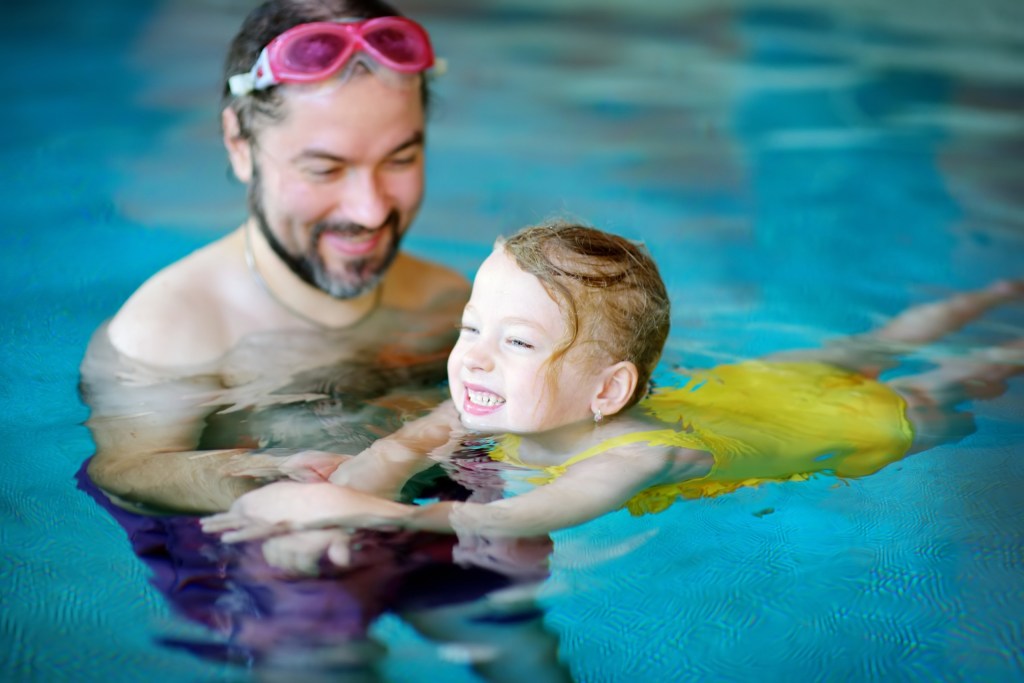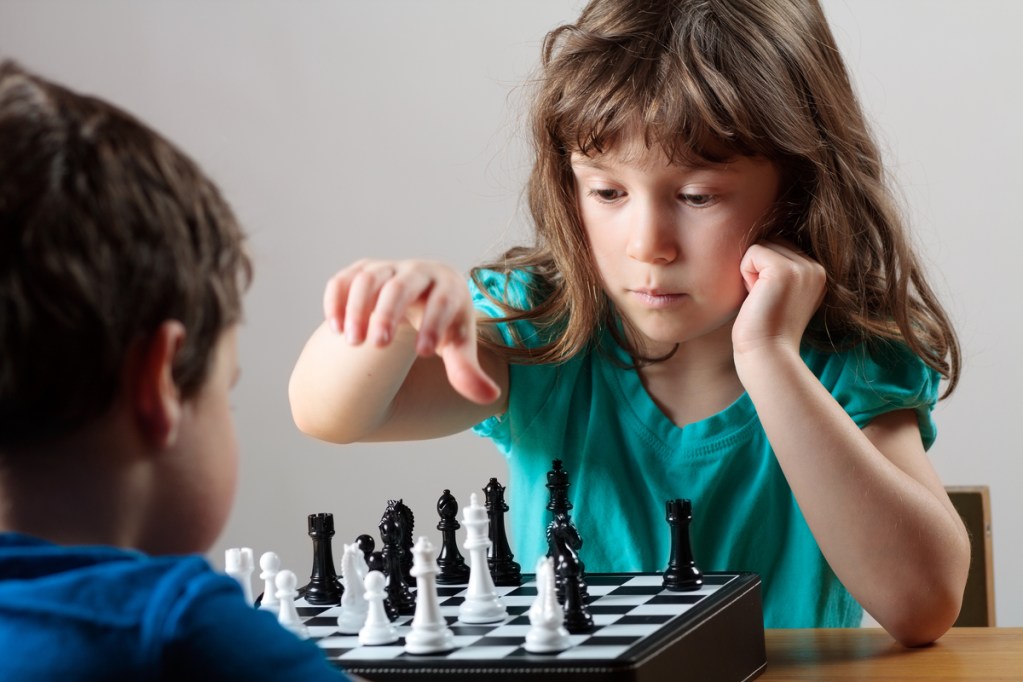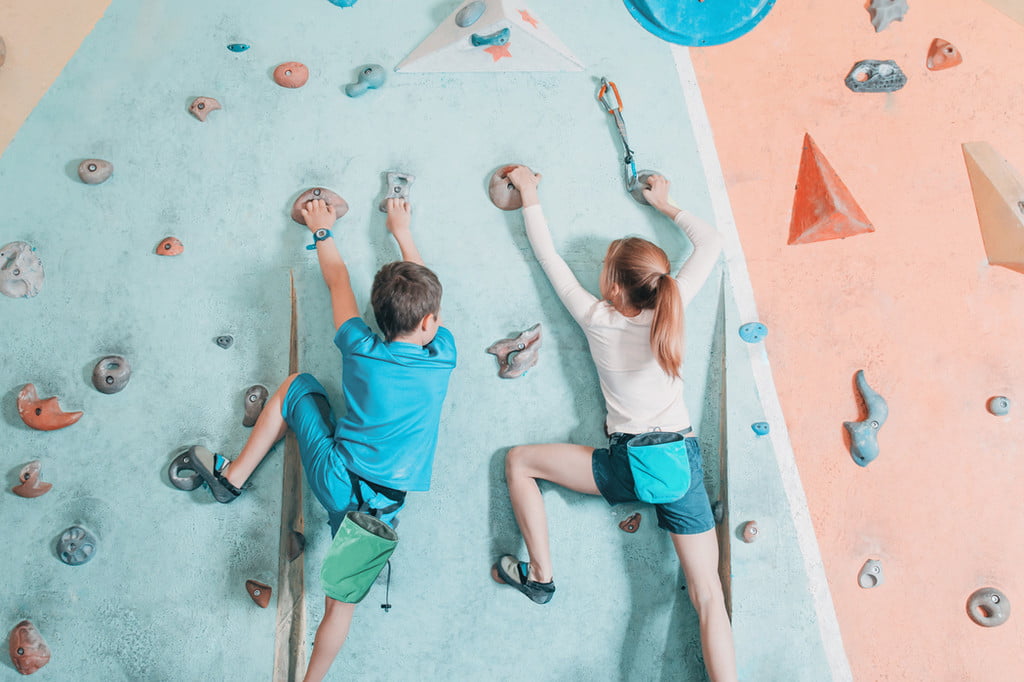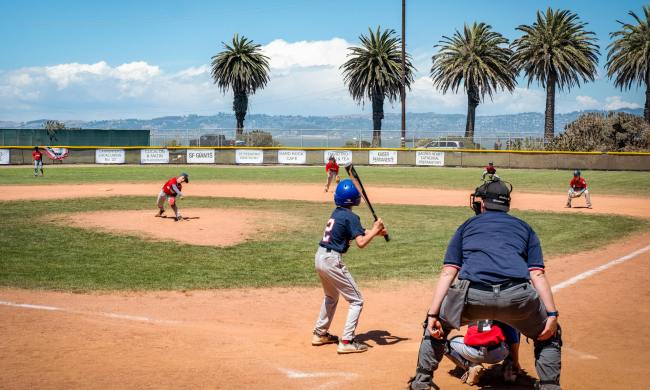Just because you have dreams of your child becoming the next LeBron James, Simone Biles, or Lionel Messi, there’s no guarantee that your kid is going to be athletic. Even if you have been an athlete for your entire life and plan to raise your child around sports, there’s a chance the next generation will either lack the coordination or interest (or both) to compete on the court or field. But that’s not the point when it comes to youth sports, is it?
We sign our kids up for soccer camps and basketball not to jumpstart their pro careers but to offer experiential learning and physical activity. Kids’ sports can teach all kinds of great lessons, from teamwork and resilience to strategy and sportsmanship. But what is a parent to do when the kiddos are genuinely nonathletic? Find the right sport, of course.
The spectrum of kids’ sports is surprisingly vast and includes a number of great options that are far more accessible. Unlike, say, basketball, these sports rely a bit less on physical ability and more on interest and curiosity. Best of all, many of them involve more hands-on coaching as part of the process, allowing little participants to continue learning.
By all means, try to introduce your kids to sports like soccer, hockey, and tennis. Simply trying a new sport is a healthy exercise and exposes kiddos to new things. If your kids want a little taste of competition without the heightened athletic details that can come with the territory, we have some fine options.
Hiking

Yes, hiking is a sport. It may not have the specialized equipment and drama of a fellow outdoor sport like skiing (nor the costs), but it’s an excellent introduction to the wonder of Mother Nature. They can hike at different pace levels, from a slow walk to a healthy jog, and can incorporate educational tie-ins like camping and cartography.
There are clever ways to make it more competitive, too, like creating races, scavenger hunts, or impromptu games, such as capture the flag while on the trail. Taking in some wildlife? Make it a game and see who can spot the most bird species.
Swimming

Swimming is a nice option for a variety of reasons. For starters, it tends to come with built-in education, involving lessons early and often. It’s low impact and most kids are capable, regardless of their size or athletic ability. Perhaps best, it teaches little ones to be comfortable in the water and to respect its power, a lesson that never grows old.
The sport of swimming can lead to more niche water sports like diving, surfing, water polo, distance swimming, and more, but it can also just stay as a recreational sport if that’s most comfortable. And with indoor pools, there’s never an off-season for swimming.
Chess

A true brain sport, chess involves sitting at a table. That means the least athletic kiddos out there can excel at this particular mind game. There’s lots of cool contextual culture to get them interested, like great movies and international scandals, and it requires little more than a board and plenty of practice. It’s also a little like learning a second language in that starting on the early side has its advantages.
Biking

Most kids like to bike and the hobby can be taken to sporting levels with a little more time and effort. As with hiking, encourage new routes and perhaps even new terrain if they have the right kind of bike. Introduce your kids to the spectacle of pro cycling, even if just to show them the cool scenery and open-air joy that tend to come with it (plus, it’s an excuse for you to cue up some Tour de France footage).
Get them pumped on things like the peloton (the pack of riders, not the stationary bike) and polka-dot jerseys to pad the interest levels. As kids grow older and more comfortable on the saddle, the competitive ante can be upped, whether it be organized races or personal bests on familiar routes.
Karate

Like swimming, karate tends to take advantage of intimate instruction. Karate’s tiered belt system means kids can progress along as they wish, gauging interest and ability as they go along. Most kiddos are sold on the idea of fighting, but the real takeaway here, of course, is the exercise, discipline, self-defense, and art involved. Plus, children love an opportunity to don a great costume and engage in some pretty loud call-and-response with a teacher.
Bouldering

Rock climbing gets harder as you approach adulthood, as the added weight and decrease in flexibility hamper things. Most kids like to scamper around, making bouldering a great option. They’ll learn about finger and toe strength, love the color-coded routes most gyms offer, and not be afraid of failure, as it usually just involves a short drop onto a padded floor.
Gymnastics

Gymnastics is an excellent sport for kids of all athletic abilities. Kids can start in gymnastics at any age because it’s a sport that focuses on developing flexibility, coordination, balance, and body control—skills that can be improved with practice rather than raw talent. While your child may take lessons with other children, gymnastics will encourage them to progress at their own pace.
The variety of events, from floor routines to bars and vault, means every child can find an area where they excel. Plus, gymnastics builds confidence, discipline, and resilience, making it a perfect entry point for kids looking to challenge themselves in a supportive and dynamic environment.
Fishing

Of the many sports out there, fishing may be the most meditative and therapeutic. As your kid will quickly learn, it’s not about the catching. Instead, it’s about the connection to nature, reading the water, being active outside, and fine-tuning their technique. They can make it more competitive by way of fish tallies or fly-tying lessons, and because it mostly involves waiting, kids of various ability levels can take it on. The best part? Your kid may even learn the value of patience (maybe).



